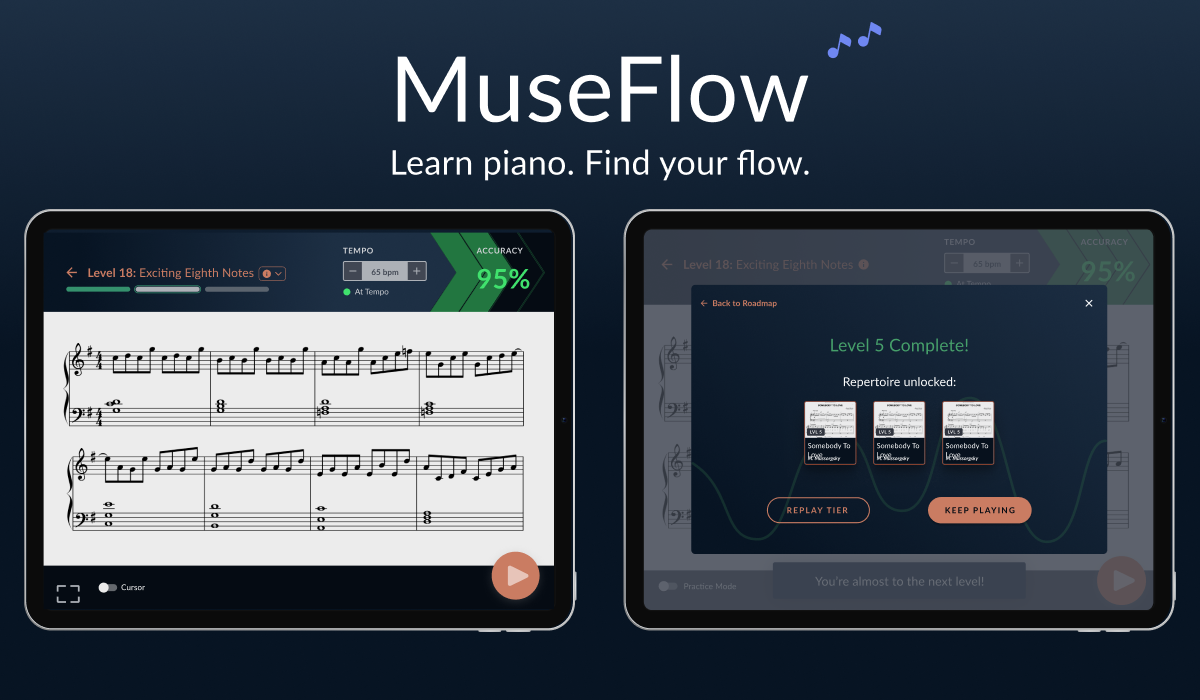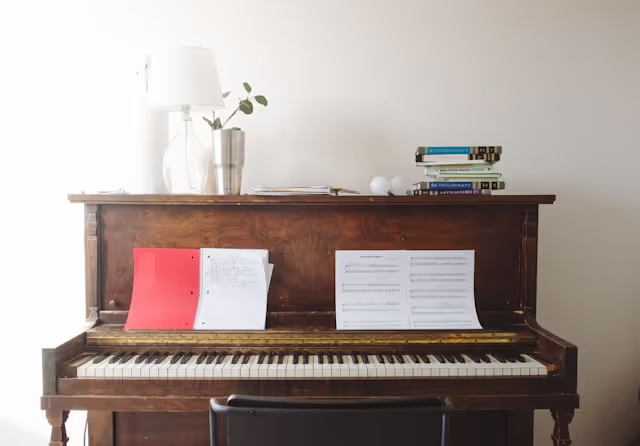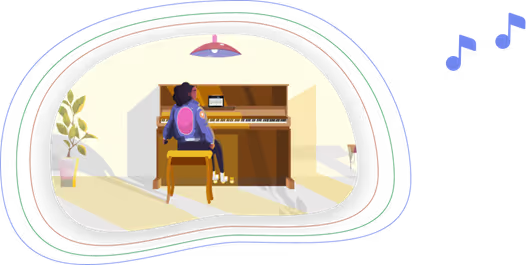.svg)
What Should Piano Beginners Learn First?The Surprising Answer That Changes Everything
Picture this: you've just decided to learn to play piano. You're excited, maybe a little nervous, and definitely overwhelmed by all the advice out there. Should you start with scales? Learn your favorite song? Master proper hand position first? If you've spent any time researching beginner piano lessons, you've probably encountered dozens of different opinions about where to begin your musical journey.
Here's the thing.. most of that advice is missing the most crucial element that separates successful piano learners from those who struggle and eventually give up. The answer might surprise you, but it's backed by solid research and could completely transform how you approach learning piano.
The skill that should come first? Sight reading.
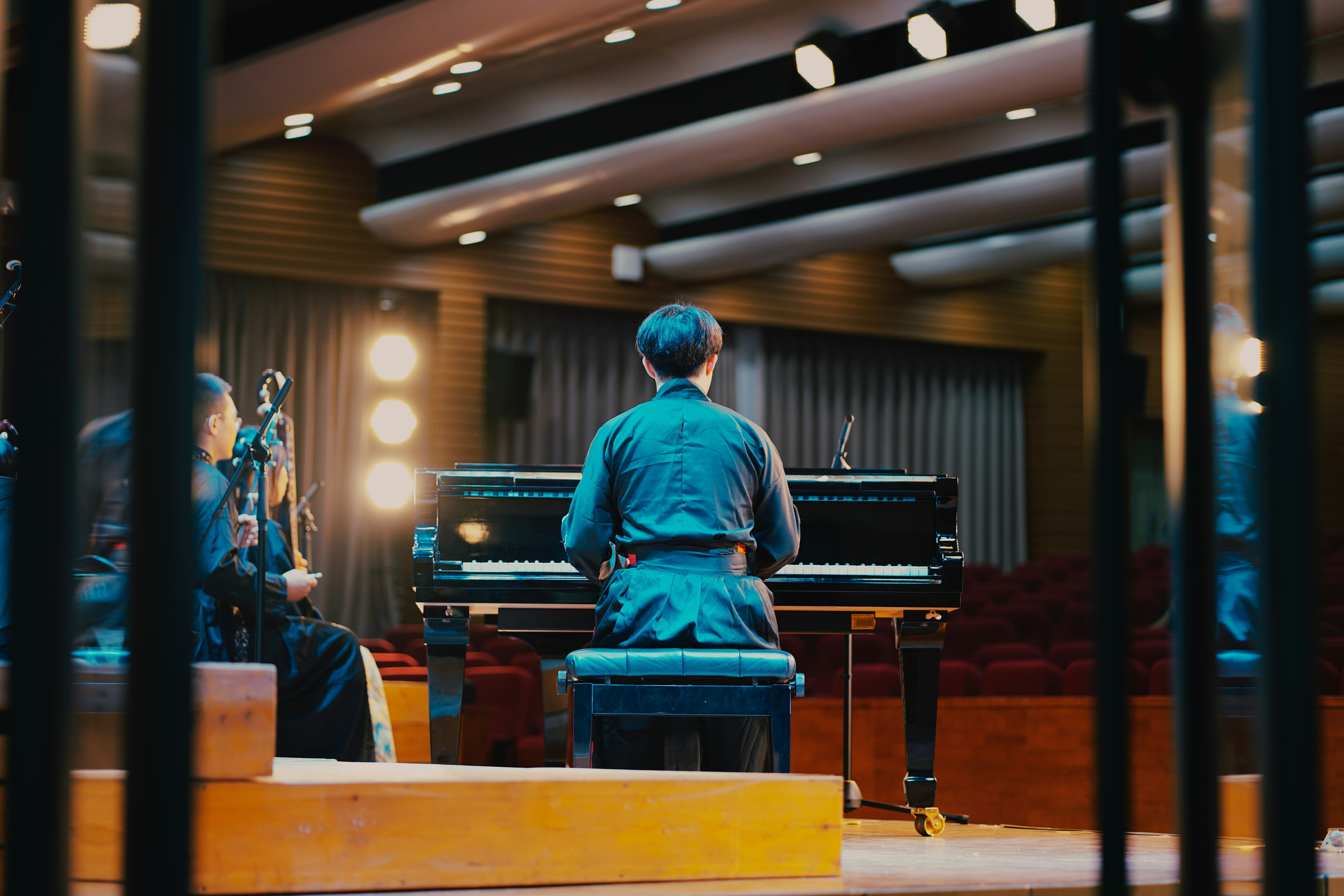
The Research Reveals a Game-Changing Truth
Before you roll your eyes and think "that sounds too advanced for a beginner," let me share what the research actually shows. A groundbreaking study published in the Journal of Eye Movement Research examined the cognitive differences between expert and novice musicians, and the findings are remarkable.
Expert sight readers don't just read music faster.. they process musical information in a fundamentally different way. The research shows that experienced players require significantly less time to process musical notation, and they use fewer eye fixations to acquire the same visual information that overwhelms beginners. This isn't just about reading notes quickly.. it's about how the brain develops neural pathways for musical understanding.
Musicians with strong sight reading skills demonstrate superior pattern recognition, enhanced working memory for musical information, and better integration of visual, auditory, and motor skills. In other words, sight reading creates the foundation that makes everything else in piano learning easier and more intuitive.
The study found that expert sight readers could see more notes ahead of their playing than novices, allowing them to anticipate and prepare for upcoming musical challenges. This forward-thinking approach is exactly what transforms mechanical note-playing into true musical expression.
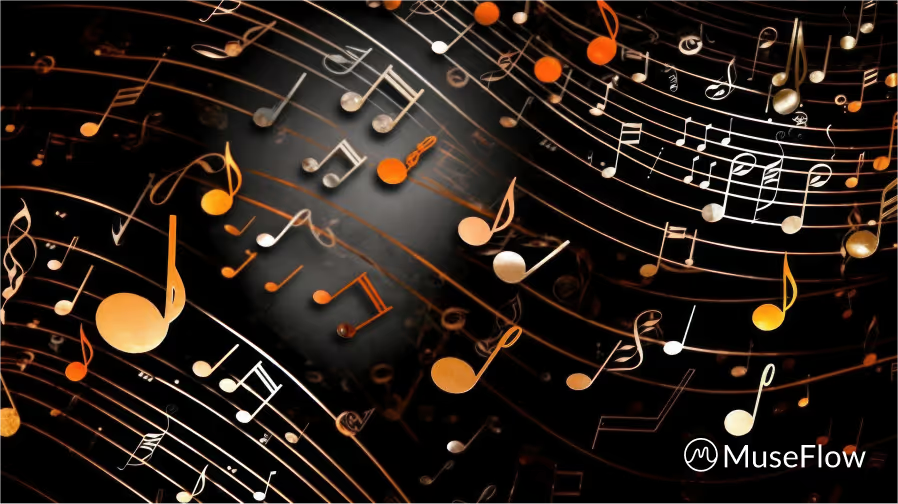
Why Traditional Methods Miss the Mark
Most piano tutorials and beginner piano lessons start with scales, simple melodies, or basic technique exercises. While these aren't inherently bad, they often create what we call the "skill gap." Students learn to play specific pieces through repetition and muscle memory, but they never develop the fundamental skill of reading and interpreting new music.
Think about it this way: if you learned to read English by memorizing entire books word-for-word, you'd never actually learn to read. The same principle applies to piano learning. When beginners focus exclusively on learning individual songs through easy piano tutorial videos, they're building a house without a foundation.
This approach leads to several frustrating limitations. First, learners hit a plateau where they can only play the specific pieces they've memorized, but they can't tackle new music independently. Second, they become overly dependent on external guidance.. always needing someone to show them exactly how each piece should sound.
Classical piano training has long recognized sight reading as essential, but traditional methods often introduce it too late in the learning process.
.avif)
MuseFlow's Revolutionary Approach
This is where MuseFlow changes everything. Instead of treating sight reading as an advanced skill to tackle later, MuseFlow puts it at the very center of the learning experience from day one. But here's what makes it brilliant.. they've figured out how to make sight reading actually engaging and accessible for complete beginners!!
MuseFlow combines the best elements of open-world and campaign mode game design. You can choose your own adventure, exploring different musical concepts at your own pace, or follow their carefully crafted guided curriculum that builds systematically from the absolute basics. It starts with just one note and three simple rhythms, then gradually introduces both hands working together.
The genius is in how they've gamified the entire process. Instead of boring drills, you're progressing through levels, unlocking new challenges, and building real skills that transfer to actual music. Their repertoire section becomes available as you develop sight reading competency, so you're always applying your growing skills to real songs rather than abstract exercises.
What sets MuseFlow apart as the best app for learning piano is their understanding of Flow State principles. The challenges are perfectly calibrated to be engaging without being overwhelming. This isn't just another piano guide or collection of tutorials.. it's a complete system designed around how the brain actually learns musical skills most effectively.
The real-time feedback helps you build good habits from the very beginning, and because everything is built around sight reading, you're developing musical independence rather than dependence on external instruction.

Getting Started Today
Ready to experience the difference that starting with sight reading can make? All you need is any keyboard for learning piano or midi keyboard to get started with MuseFlow. The platform works with any standard keyboard, so you don't need expensive equipment to begin your journey.
MuseFlow offers a free trial that lets you experience their revolutionary approach firsthand. Instead of spending months struggling with traditional methods, you could be building the fundamental skills that will serve you throughout your entire musical journey.
Try MuseFlow today and discover why sight reading first isn't just better.. it's the key that unlocks everything else!


.jpg)

